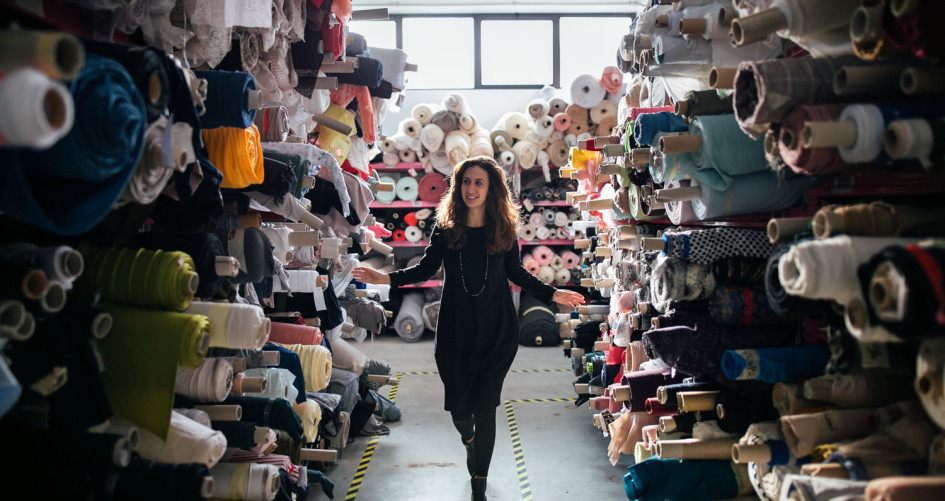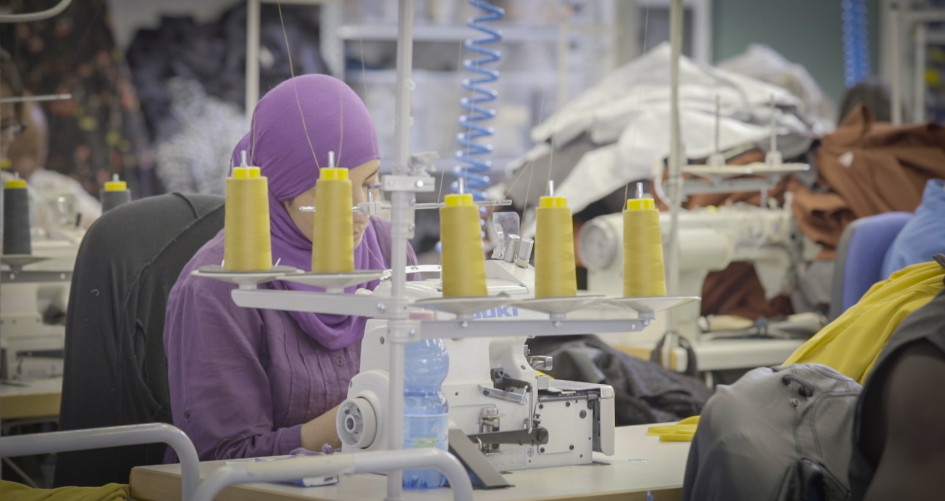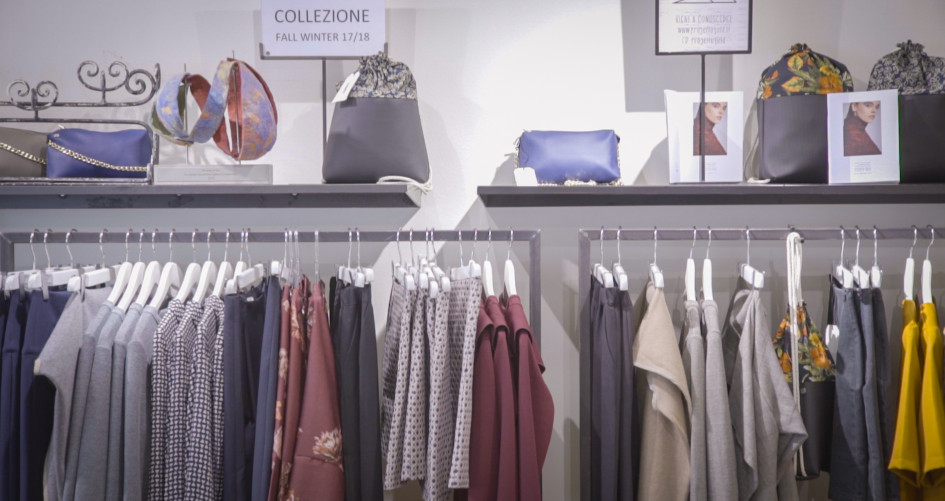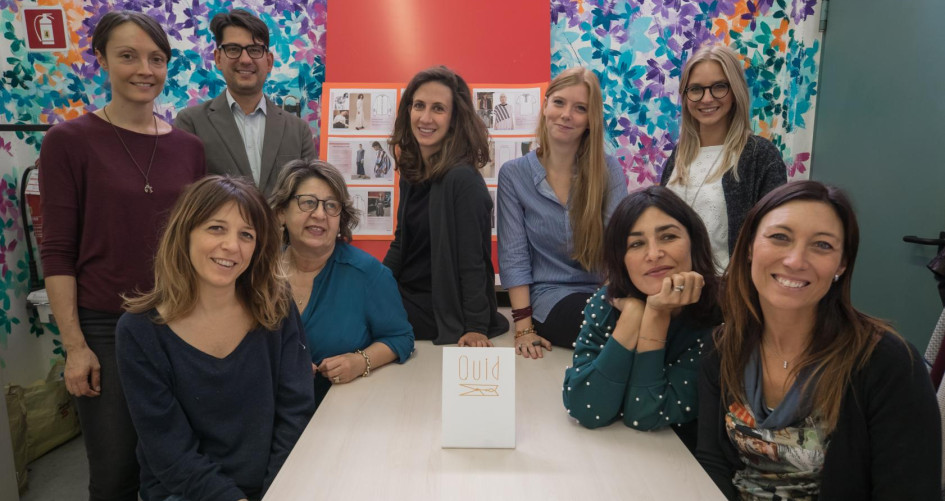QUID is a woman-led, eco-fashion social enterprise in Verona, Italy, that addresses climate change, while responding to gender inequality by providing jobs for disadvantaged female workers. This mainly female enterprise (85% of the employees are women) recycles high-quality fabric waste from fashion companies to produce and sell women’s designer clothing collections. These collections are sold through partnerships with fashion companies that believe in QUID’s values and feature QUID’s collections in their stores. As demand and sales have increased, so too has production, which allows the cooperative to employ an increasing number of female workers every year, while recovering a growing amount of otherwise wasted fabric. The increase in fabric that is recycled leads to less textile waste and less energy needed to dispose of that waste.
Key facts
- Of the 75 workers, 85% are women, with 70% of those representing disadvantaged women;
- More than 200,000 metres of fabric were recovered in 2016, reducing carbon dioxide emissions by around 18,000 tonnes;
- 20,000 tonnes of textile materials were recovered and recycled in 2016;
- 18,000 tonnes of carbon dioxide and 1,000 tons of sulphur dioxide emissions were avoided;
- 60 million kilowatts of energy were saved;
- 500.000 metric tonnes of water, 650 tonnes of chemicals used to wash and die fabrics, and 300 tonnes of coloring products were saved;
- Turnover growth has increased from € 100,000 in 2013 to over a million euro in 2016.
The problem
Fashion companies produce excess fabric that remains at the end of the production cycle. The fashion companies do not reuse the fabric and so it is disposed of through a polluting and expensive disintegration process. Disadvantaged women hired by QUID include victims of domestic violence, prostitution, and who encounter obstacles when searching for employment.
The solution
QUID’s innovative model uses waste materials from the fashion industry to create its own designs and to reduce energy and environmental impacts, thus maximizing the sustainability of this industrial sector. The cooperative comprises an almost entirely female enterprise and pursues the social mission of tackling the high unemployment rate among disadvantaged female workers to provide an improved social status and livelihood. Contributing to the success of this project is the fact that companies sell waste fabrics to QUID at low prices, which fosters growth, and the potential to hire more female workers.
Helping the planet
QUID’s innovative model allows for the recovery of a large amount of fabric waste, thus avoiding disposal to landfills, which are prone to producing a powerful greenhouse gas, methane. Energy consumption associated with waste disposal is also reduced, with a knock-on effect of cost savings. During QUID’s first four years of activity, it has continued to recover an ever-increasing quantity of fabric, avoiding greenhouse gas emissions that would otherwise have resulted.
Helping people
QUID provides employment to socially disadvantaged women who were previously unemployed and experienced difficulties in finding work. Women are therefore provided with an income and their social standing is improved. Women with very different cultural and social backgrounds are involved in the day-to-day running of this enterprise, which fosters the creation of fruitful human relationships with women who have experienced similar and difficult experiences. QUID’s founder and president, Anna Fiscale, has proven to be extremely capable in running a successful business that displays several sustainable and positive aspects, as well as being highly profitable. She serves as a role model for other young women who plan to follow the path of entrepreneurship.
Spillover effect
QUID plans on maximizing its societal impact by employing an increasingly higher number of disadvantaged workers. QUID predicts a yearly increase of the amount of fabric that it recovers and an increase in the corresponding waste fabric, with a subsequent increase in the number of employees, from 5 in April 2013 to 75 in 2017. They are aiming to employ at least 25 more disadvantaged workers, reaching at least 100 employees by 2018. As QUID is a cooperative, the profit is re-invested in developing the enterprise and expanding the group of beneficiaries. QUID has experienced substantial growth in the past four years, made possible in part by an extraordinary financial turnover.
Unemployment of disadvantaged female workers, gender inequality, and textile waste is prevalent in many countries. QUID’s long-term plan is to support the creation of a “Social Franchising”, replicating the project in other areas both at the national and international level. QUID will provide support and mentoring to these new enterprises, including: training, human resources, the search for for-profit partners and the creation of a network of social and sustainable partners, thus expanding those that can benefit from the sustainable circular economy methods developed by QUID.




Images owned by the activity partners, all rights reserved.









